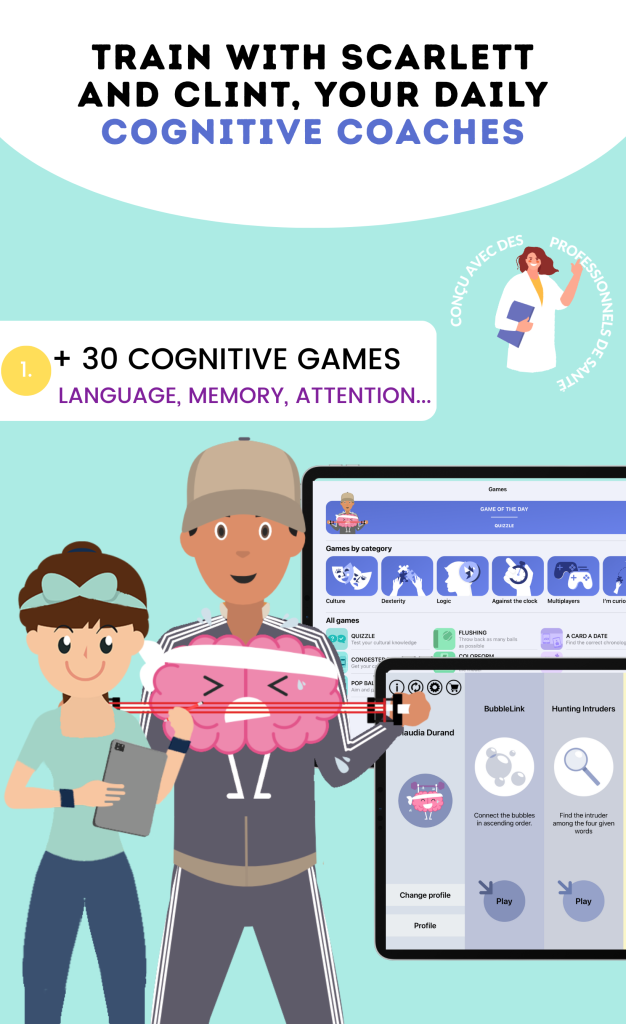Our company is committed to developing a home care toolkit, which aims to improve the quality of life for elderly people and people with disabilities. This toolkit will include a range of tools and resources to assist family caregivers and home care professionals in their daily work. To ensure the effectiveness and relevance of this toolkit, we have decided to collaborate with healthcare professionals.
Collaboration with healthcare professionals is essential for the development of our home care toolkit. These professionals have an in-depth understanding of the needs and challenges faced by family caregivers and people with disabilities. Their expertise will allow us to develop tools and resources tailored to the specific needs of these populations. Moreover, their practical experience will help us identify best practices and the most effective solutions to improve the quality of life for those involved.
Objectives of Collaboration with Healthcare Professionals
Collaboration with healthcare professionals has several key objectives for the development of our home care toolkit. First, we want to gather their knowledge and expertise to better understand the specific needs of family caregivers and people with disabilities. This will enable us to develop tools and resources that truly address these needs and are adapted to their daily realities.
Secondly, we want to benefit from the practical experience of healthcare professionals to identify best practices and the most effective solutions to improve the quality of life for those involved. Their field experience will allow us to identify the challenges faced by family caregivers and people with disabilities, as well as the strategies and resources that have been effective in overcoming them.
Finally, we also wish to raise awareness among healthcare professionals about the importance of home care and the challenges faced by family caregivers. By collaborating with them, we hope to enhance their understanding of these issues and encourage their support and involvement in improving home care services.
The Benefits of Collaboration with Healthcare Professionals
Collaboration with healthcare professionals offers numerous advantages for the development of our home care toolkit. First, it allows us to access specialized expertise in the field of health and well-being. Healthcare professionals have an in-depth understanding of the specific needs of elderly people and people with disabilities, as well as best practices for addressing these needs. Their expertise will enable us to develop tools and resources that are genuinely useful and relevant for these populations.
Additionally, collaboration with healthcare professionals allows us to benefit from their practical experience in the field. They are in direct contact with family caregivers and people with disabilities, and therefore know the challenges they face on a daily basis. Their knowledge and experience will help us identify best practices and the most effective solutions to improve the quality of life for these populations.
Finally, collaboration with healthcare professionals also allows us to raise awareness among them about the importance of home care and the challenges faced by family caregivers. By working together, we can strengthen their understanding of these issues and encourage their support and involvement in improving home care services.
The Different Types of Healthcare Professionals Involved in the Collaboration
Collaboration with healthcare professionals involves different types of professionals, each with a specific role to play in the development of our home care toolkit. Among these professionals are doctors, nurses, occupational therapists, and social workers.
Doctors play a crucial role in the collaboration, as they have an in-depth understanding of the medical needs of elderly people and people with disabilities. Their medical knowledge will allow us to develop tools and resources that take these specific needs into account.
Nurses are also key players in the collaboration, as they are in direct contact with patients and family caregivers. Their practical experience will help us identify the challenges faced by family caregivers and people with disabilities, as well as the best practices to address them.
Occupational therapists play an important role in the collaboration, as they specialize in assessing and adapting the environment to facilitate the daily lives of elderly people and people with disabilities. Their expertise will enable us to develop tools and resources that promote autonomy and quality of life for these populations.
Finally, social workers are also key players in the collaboration, as they have an in-depth understanding of the resources available for family caregivers and people with disabilities. Their expertise will help us identify the resources and services that are necessary to support these populations.
The Steps of Collaboration with Healthcare Professionals
Collaboration with healthcare professionals takes place in several key steps, each essential for the development of our home care toolkit. First, we need to establish a partnership with healthcare professionals by explaining our project and soliciting their participation. It is important to clearly communicate our objectives and expectations in order to gain their support and commitment.
Once the partnership is established, we need to gather the knowledge and expertise of healthcare professionals. This can be done through individual interviews, focus groups, or surveys. The goal is to understand the specific needs of family caregivers and people with disabilities, as well as the best practices and the most effective solutions to improve their quality of life.
Next, we need to develop the tools and resources in collaboration with healthcare professionals. This may include creating practical guides, educational videos, or mobile applications. The goal is to develop tools that are genuinely useful and relevant for family caregivers and people with disabilities.
Finally, we need to evaluate the effectiveness of the tools and resources developed in collaboration with healthcare professionals. This can be done through qualitative and quantitative evaluations to measure the impact of the tools on the quality of life of the individuals involved.
The Roles and Responsibilities of Healthcare Professionals in the Collaboration

Healthcare professionals have a key role to play in the collaboration for the development of our home care toolkit. Their expertise and practical experience are essential for understanding the specific needs of family caregivers and people with disabilities, as well as for identifying best practices and the most effective solutions to improve their quality of life.
Healthcare professionals also have the responsibility to provide their support and commitment to the collaboration. They must actively participate in the various stages of the process, sharing their knowledge and expertise, providing feedback and suggestions, and evaluating the effectiveness of the tools and resources developed.
Finally, healthcare professionals also have the responsibility to raise awareness among their peers about the importance of home care and the challenges faced by family caregivers. They should encourage their support and involvement in improving home care services to enhance the quality of life for those involved.
The Tools and Technologies Used for Collaboration with Healthcare Professionals
Collaboration with healthcare professionals utilizes a range of tools and technologies to facilitate communication and information sharing. Among these tools are online platforms, project management software, and virtual communication tools.
Online platforms allow for sharing documents, resources, and information with healthcare professionals. They facilitate remote collaboration and enable different stakeholders to work together effectively.
Project management software allows for planning, organizing, and tracking the various stages of the collaboration process. They also help manage tasks, deadlines, and resources to ensure the smooth progress of the project.
Virtual communication tools, such as video conferencing and instant messaging, allow different stakeholders to communicate in real-time, regardless of their geographical location. They facilitate coordination and collaboration between healthcare professionals and the toolkit development team.
The Results of Collaboration with Healthcare Professionals
Collaboration with healthcare professionals has yielded positive results for the development of our home care toolkit. Thanks to their expertise and practical experience, we have been able to develop tools and resources that truly meet the specific needs of family caregivers and people with disabilities.
The tools and resources developed in collaboration with healthcare professionals have also had a positive impact on the quality of life for those involved. They have improved the autonomy, well-being, and safety of family caregivers and people with disabilities by providing them with the information and resources they need to face daily challenges.
Finally, collaboration with healthcare professionals has also helped raise awareness among them about the importance of home care and the challenges faced by family caregivers. It has encouraged their support and involvement in improving home care services, which has positively impacted the quality of care provided.
The Limitations and Challenges of Collaboration with Healthcare Professionals
Collaboration with healthcare professionals also presents certain limitations and challenges. First, it can be difficult to obtain the participation and commitment of healthcare professionals due to their already heavy workload. It is therefore essential to clearly communicate the objectives and expectations of the collaboration to generate their interest and support.
Moreover, collaboration with healthcare professionals may also face financial and logistical constraints. It can be challenging to find the necessary resources to carry out the project, particularly in terms of funding and personnel. It is therefore important to plan and manage the available resources effectively to ensure the smooth progress of the project.
Finally, collaboration with healthcare professionals may also encounter differences in opinions and priorities. Healthcare professionals have different perspectives regarding home care, which can sometimes lead to disagreements and conflicts. It is therefore important to encourage open communication and mutual respect to overcome these differences and reach a consensus.
The Advantages of Collaboration with Healthcare Professionals for the Development of Our Home Care Toolkit
In conclusion, collaboration with healthcare professionals is essential for the development of our home care toolkit. It allows us to access specialized expertise in the field of health and well-being, ensuring the quality and effectiveness of our tools. Furthermore, this collaboration enables us to benefit from the knowledge and experiences of healthcare professionals, allowing us to tailor our tools to the specific needs of elderly or ill individuals. By working together, we can also identify gaps in our toolkit and improve them accordingly. Finally, collaboration with healthcare professionals strengthens our credibility and legitimacy as a home care company, enabling us to establish strong partnerships with other stakeholders in the health sector. In summary, collaboration with healthcare professionals is a key element for the development and success of our home care toolkit.





